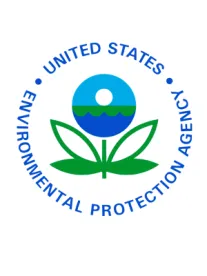EPA Announces CDR 2020 Submission Period Extension
On April 9, 2020, EPA issued a final rule amending the Toxic Substances Control Act (TSCA) Chemical Data Reporting (CDR) regulations by extending the 2020 report submission deadline to November 30, 2020. The extension applies to the 2020 submission period only. As many are aware, CDR regulations require manufacturers (including importers) of certain chemical substances to report data on the manufacturing, processing, and use of the chemical substances. This final rule is effective as of April 9, 2020.
This final rule has been published alongside EPA’s CDR Revisions final rule, which includes several changes to make regulatory updates that align with new statutory requirements of TSCA, improve the data collected, and potentially reduce the burden for chemical reporters. The CDR Revisions final rule will be effective on May 11, 2020.
Given the changes to become effective, The Acta Group (Acta®) announced on April 1, 2020, the launch of CDR Cross-Check™, an ingenious yet simple tool developed and offered by Acta to assist companies in preparing for the 2020 CDR required by EPA. CDR Cross-Check utilizes the most recent CDR listing information publicly available provided by EPA (currently, 2016 lists) to identify whether all or some of a company’s inventory of chemical substances are subject to CDR under TSCA and, if so, at what reporting threshold. CDR Cross-Check will make CDR reporting easier. CDR Cross-Check will identify whether chemicals are listed on the TSCA Inventory and, if so,
- whether they are listed as active or inactive;
- whether they were subject to specific TSCA regulatory actions in 2016;
- whether they are exempt; and
- what the 2020 reporting thresholds would be based on the 2016 data.
Visit the CDR Cross-Check website, https://cdr-cross-check.actagroup.com/, for more information and to order a CDR Cross-Check report.
EPA Extends Comment Period For SNPRM On Strengthening Transparency
On March 3, 2020, EPA announced the availability of a supplemental notice of proposed rulemaking (SNPRM) to the Strengthening Transparency in Regulatory Science proposed rule. EPA notes that the SNPRM “is not a new rulemaking; rather, it provides clarifications on certain terms and aspects of the 2018 proposed rule.” The SNPRM:
- Proposes that the scope of the rulemaking applies to influential scientific information, as well as significant regulatory decisions;
- Defines and clarifies that the proposed rule applies to data and models underlying both pivotal science and pivotal regulatory science;
- Proposes a modified approach to the availability provisions for data and models that would underlie influential scientific information and significant regulatory decisions, as well as an alternate approach; and
- Clarifies the ability of the Administrator to grant exemptions.
EPA published the SNPRM in the Federal Register on March 18, 2020. 85 Fed. Reg. 15396. EPA states that it “is taking comment on whether to use its housekeeping authority independently or in conjunction with appropriate environmental statutory provisions as authority for taking this action.” On April 2, 2020, EPA announced that it would extend the comment period to May 18, 2020. EPA anticipates promulgating a final rule later in 2020. More information is available in our March 9, 2020, memorandum, “EPA Releases Supplemental Proposed Rule to the Proposed Rule on Strengthening Transparency in Regulatory Science.”
EPA Submits Letter To Congress: “Correct The Record On The Temporary Enforcement Policy”
EPA announced on April 2, 2020, that it sent a letter to all members of Congress to correct the record on its temporary policy regarding enforcement of environmental legal obligations during the COVID-19 pandemic. EPA states that “[a]s should be apparent to anyone who reads the policy, allegations that EPA ‘will cease all enforcement actions during the coronavirus pandemic’ and that the temporary policy ‘absolves polluters of all responsibility’ are simply not true.” According to EPA, it expects regulated entities to comply with all obligations, and if they do not, EPA emphasizes that the policy states EPA will consider the pandemic, on a case-by-case basis, when determining an appropriate response. Furthermore, in cases that may involve acute risks, or imminent threats, or failure of pollution control or other equipment that may result in exceedances, “EPA’s willingness to provide even that consideration is conditioned on the facility contacting the appropriate EPA region, or authorized state or tribe, to allow regulators to work with that facility to mitigate or eliminate such risks or threats.”
EPA states that it is “not unusual for EPA to exercise enforcement discretion to address emergency situations that disrupt normal operations, such as hurricanes. What is unusual is that the current crisis caused by the COVID-19 pandemic affects the entire nation,” rather than a discrete geographic area. According to EPA, it developed the temporary policy to allow it to prioritize its resources to respond to acute risks and imminent threats, rather than making case-by-case determinations regarding routine monitoring and reporting. EPA notes that the development of the policy was a group effort, involving “multiple calls” and with “drafts shared among EPA staff and managers, both career and political, at both headquarters and in the regions.” Once the COVID-19 threat has ended, “EPA expects regulated facilities to comply with regulatory requirements, where reasonably practicable, and to return to compliance as quickly as possible.” Additionally, according to EPA, “the policy makes clear that EPA expects operators of public water systems to continue normal operations and maintenance during this time, as well as required sampling, to ensure the safety of vital drinking water supplies.”
More information on EPA’s temporary policy is available in our March 27, 2020, blog item, “EPA Announces Temporary Enforcement Discretion Policy.”



 />i
/>i

